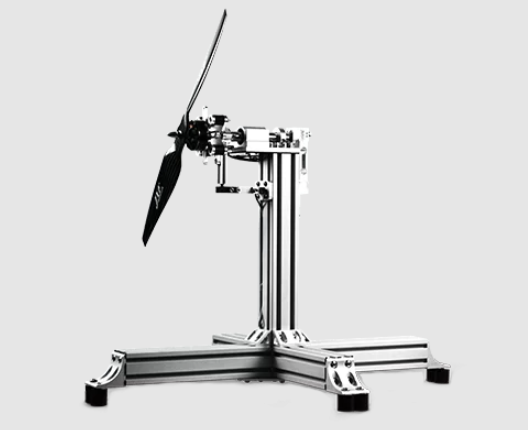The Importance of Motor Testing in Industrial Applications
Motors are the heart of many industrial applications, powering everything from conveyor belts to pumps to heavy machinery. With such a critical role, it's essential to ensure that motors are functioning at their best. That's where motor testing comes in. Motor testing is the process of evaluating the performance of a motor to ensure it meets the required specifications and performance standards.

There are several different types of motor tests that can be performed, each with its own set of benefits. One of the most common types of motor tests is a motor insulation test, which measures the insulation resistance of the motor windings. This test is critical to ensure that the motor is properly insulated and can operate safely without the risk of electrical arcing or short-circuiting.
Another important motor test is the motor current signature analysis (MCSA), which is used to detect any abnormalities in the motor's current signature. This test can identify issues such as rotor bar faults, broken rotor bars, or eccentricity, which can cause motor failures if left unaddressed.
Motor test benches and motor test stands are essential tools for conducting motor tests. These devices provide a controlled environment for testing motors under various conditions, such as load, speed, and temperature. They also allow for more accurate and precise measurements, helping to identify even the smallest issues with the motor's performance.
Motor test benches and stands can be customized to meet the specific needs of each application. For example, a test bench for a large industrial motor may need to be able to handle high power and high voltage, while a test stand for a smaller motor may be designed to be more compact and portable.
Motor testing is essential for ensuring that industrial equipment operates safely and efficiently. By detecting potential issues before they lead to motor failure, companies can avoid costly downtime and repairs. Motor testing can also help to identify areas for improvement, allowing companies to optimize the performance of their equipment and improve their overall efficiency.
In addition to the benefits for individual companies, motor testing also plays an important role in maintaining industry-wide standards for motor performance and safety. Organizations such as the International Electrotechnical Commission (IEC) and the National Electrical Manufacturers Association (NEMA) set standards for motor performance and testing, ensuring that motors meet minimum requirements for safety and efficiency.
Additional resources:Benefits of the Motor and Propeller Test Kit
Pulse Function Arbitrary Waveform Generators: Versatile Tools for Signal Generation
Understanding the Role of Optical Domes in Optical Systems
Drone Engine Test Bench: Enhancing Efficiency and Performance
Know the Features of the Multihead Weigher?
Drone Motor Testing: Procedures and Performance Evaluation
Profilometer
Motor testing is an essential part of industrial operations, providing critical information about the performance and safety of motors. Motor test benches and stands are valuable tools for conducting these tests, providing a controlled environment for accurate and precise measurements. By investing in motor testing, companies can ensure that their equipment operates safely and efficiently, avoiding costly downtime and repairs and optimizing their overall performance.
More articles:
Benefits of the Motor and Propeller Test Kit
Water-Resistant and Explosion-Proof AC Slip Ring Motors for Harsh Environments
What is the stator in a DC motor?
Powering Progress: Advantages and Applications of Slip Ring Induction Motors
Drone Motor Testing: Procedures and Performance Evaluation
What if you can't run a generator 20 ft away from the house?
Choose The Right Diesel Engine Motor Assembly: A Comprehensive Guide
What Are the Advantages of China Test Equipment?
What is the quality assessment of power quality?
How to Choose Best Seismic Data Acquisition
Exploring the Power of Reinforced Geophone 8hz




